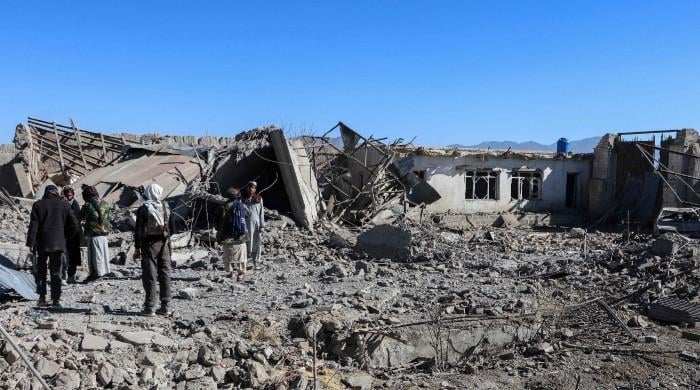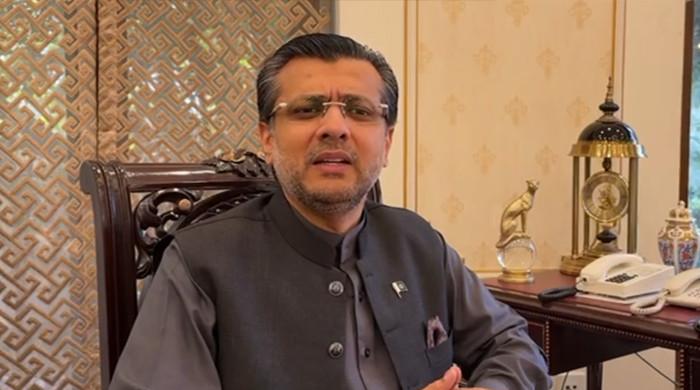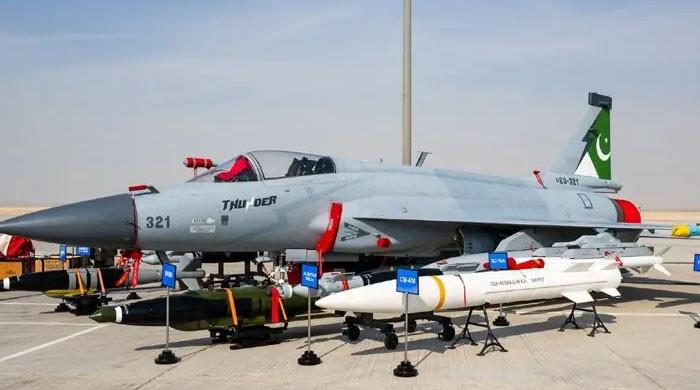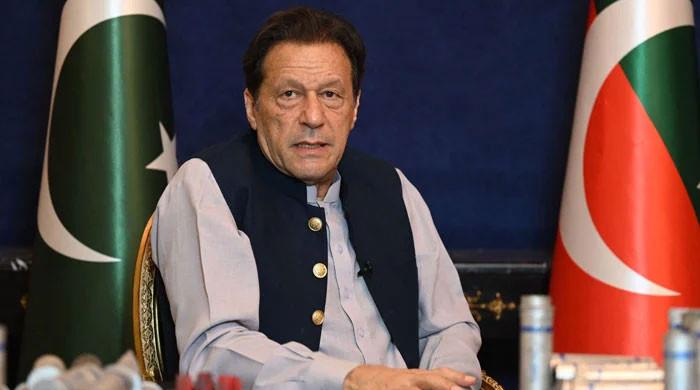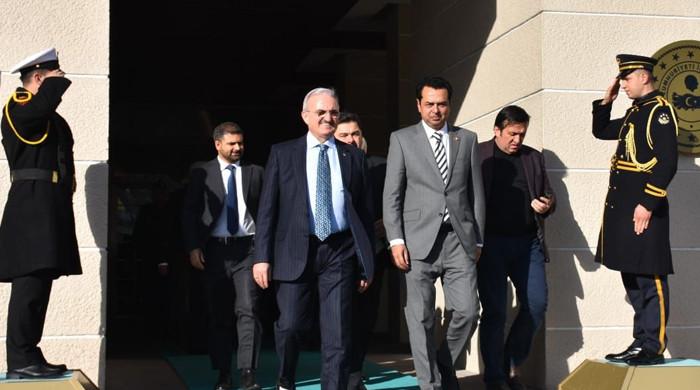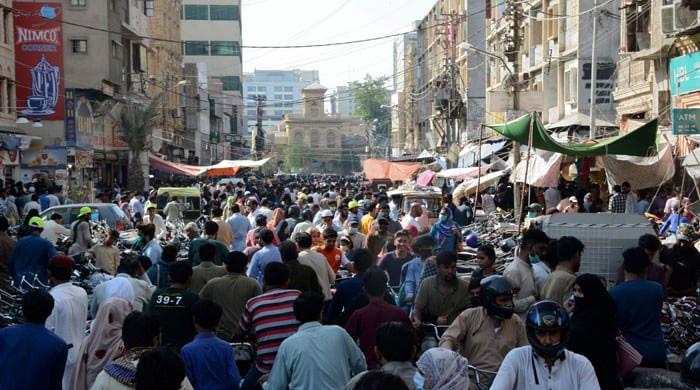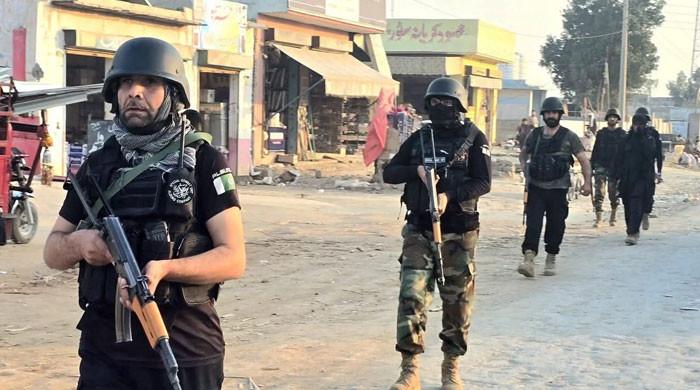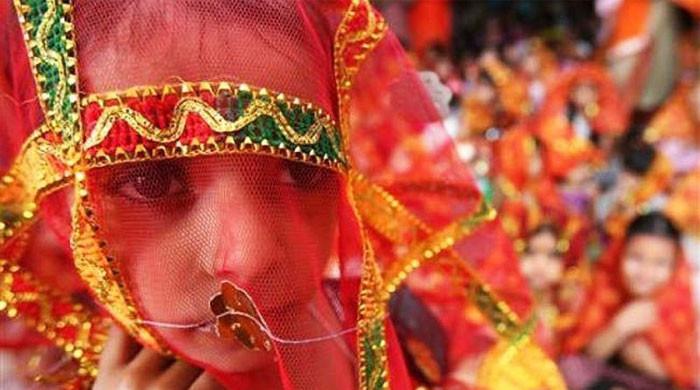Revival of Moscow Format: Why Russia warns US on Afghanistan?
Afghanistan’s acting Foreign Finister Amir Khan Muttaqi urges participants to follow China and send their ambassadors to Kabul
October 01, 2023
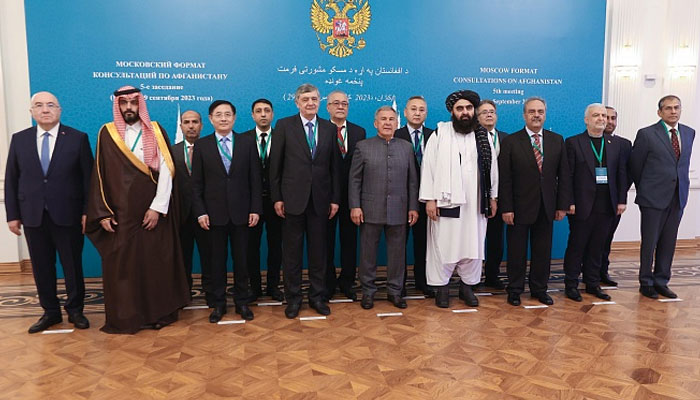
Revival of the "Moscow Format" has opened a window for the recognition of the Taliban interim government by the regional powers. However, the member countries have surprised the world by indicating that the United States of America is returning to Afghanistan.
Before we discuss what may have prompted some members of the Moscow Format to talk against Washington, let’s briefly discuss what transpired in Kazan where these talks were held on 29th and 30th September.
During his 11-minute speech, Afghanistan's acting Foreign Minister Amir Khan Muttaqi, who was a guest speaker, urged participants to follow China and send their ambassadors to Kabul.
The participants included 10 members of the Moscow Format i.e. Afghanistan, China, India, Iran, Kazakhstan, Kyrgyzstan, Pakistan, Russia, Turkmenistan and Uzbekistan. Envoys of Qatar, Saudi Arabia, Turkey and the United Arab Emirates (UAE) graced it as guests of honour.
Most participants expressed reservations about Daesh taking a foothold in different provinces and resulting violence in Afghanistan. After all, they fear Afghanistan is being turned into a hotspot for terrorists that threaten the region.
The diplomats of these countries also stressed that an inclusive government should be formed to reflect the spirit of all Afghans. Till now, the Taliban government is almost exclusively constituted of Pashtuns and only ceremonial posts are given to some others. It became evident that if the Taliban addressed this issue, recognition of their government may be considered.
However, the most striking was the warning issued without mentioning the name of any country including the United States. The declaration said the participants, ‘underscored the unacceptability of deployment of military infrastructure facilities of third countries in Afghanistan and its neighbouring states under any pretext.’
Russian Foreign Minister Sergei Lavrov elaborated on the issue by mentioning the ‘increasing involvement of extra-regional actors in Afghanistan’. In an interview, he stressed that a "full-scale pooling of efforts between the countries in the region and the Nato states is only possible under the condition that the latter fully recognise their responsibility for the lamentable results of their 20-year military presence in Afghanistan, which has culminated in a complete fiasco."
The question is why such a statement is issued now? And why Moscow Format is revived at this time? After all, the fourth Moscow Format meeting was held in November 2022 and that too without the participation of the Taliban.
Well, to understand the dynamics of this issue, one must look back and analyze some developments that had taken place two months ago when Taliban leaders met officials from the United States of America in Qatar. It was for the first time such a meeting had taken place after the Taliban took over Kabul, almost two years ago.
It is yet to be known what actually transpired in the meeting and if Washington along with Nato members is seriously considering returning to Afghanistan? If yes, then how will these countries manage the security of their diplomats, staff, buildings and projects that they undertake?
With that in mind, the revival of the "Moscow Format" has its own importance. However, it seems to be a farfetched effort to influence the policy of the member countries and bring them to one platform.
Yet, this situation is far more important to Russia, embroiled in the Ukraine war. It is natural that Moscow minutely analyzes every development taking place in its backyard.
Geographically, Russia shares no direct border with Afghanistan and it has not officially recognised the Taliban which it designated as a terror organization in February 2003. It was strange that back in 2009, Russia opened its airspace for United States military action against the Taliban and later in 2015, reengaged with the Taliban to combat Daesh as it did in 2007 to stop drug smuggling.
This closeness has encouraged the Taliban to find friends in their neighbourhood. Apparently, ditched by the Western nations, the Taliban inked a first-of-its-kind deal with Moscow to secure constant supplies of petroleum products and wheat.
Moscow has also diplomatically facilitated the group by pursuing a parallel peace mechanism to bring them to the international stage.
Moscow Format is a testament to that fact. The term ‘Moscow Format’ was coined in 2017 and, in November 2018, Russia hosted representatives from the Taliban’s political office. The talks were held under the pretext of establishing peace and creating conditions for the process of national reconciliation in Afghanistan. Till then, the Taliban were not invited to any international forum.
Earlier, encouraged by the United States, Qatar had officially opened a Taliban political office in Doha. So, in a way, the Moscow Format was a way to court at least some if not all Taliban leaders in Russia. The format also served as a joint platform for regional countries like China, Iran and Pakistan to devise a strategy that could help them deal with the future realities of Afghanistan. Washington was only ceremonially invited to Moscow Format and Delhi too remained a by-stander. Yet, countries like Kazakhstan, Tajikistan, Turkmenistan, Kyrgyzstan and Uzbekistan which have direct stakes in Afghanistan remained active.
Talks under this Moscow Format continued despite the United States and its Western allies relatively distanced themselves from the Taliban, after they pursued a different domestic and foreign policy.
There is no doubt that the Moscow Format has served well for Russia as it ensures relative peace gestures from a country infested with hosts of terrorist organizations.
After all, considering Soviet-Afghan history, the Kremlin can’t afford to keep its eye off Kabul. The current crisis in Afghanistan has only exacerbated its significance.
The question is why Russia supported the Taliban over former allies that share some ideological understanding? As per Kabulov, the forces opposing the Taliban ‘are not competitive.’
Yet, supporting the Taliban has not yielded all the required results. On September 5, 2022, the Russian embassy in Kabul was hit by a suicide bomber. It left two Russian staff members dead and six others injured. Islamic State Khorasan Province (ISKP) took responsibility for the attack. The very terrorist organization had earlier launched rocket attacks on Uzbekistan and Tajikistan.
Russian interests in the region stem from the very assumption that the security vacuum in Afghanistan may lead to instability in Central Asia and eventually pose a strategic challenge to the Kremlin. However small, Afghanistan also serves as a source for Russia to keep one of its economic channels open for South Asia and beyond as well.
Russia trusts that the Taliban are taking action against different terrorist organisations. As per Kabulov, "We should realise who benefits from it, and then we will see who stands behind it. As a rule, organisers of such resonant acts of terrorism are traced beyond the territory of Afghanistan."
For Russia, overlooking such an Afghanistan can be a recipe for a disaster. The question remains how far the Taliban will secure Russian interests in the region and at what cost? After all, they have got the bargaining chip to deal with both the East and West.
It’s a million-dollar question what will the Taliban do in this situation? One may predict the pathway but for that, the person should be able to look into the secret annexes of the Doha Peace Deal signed between the United States and the Taliban.




